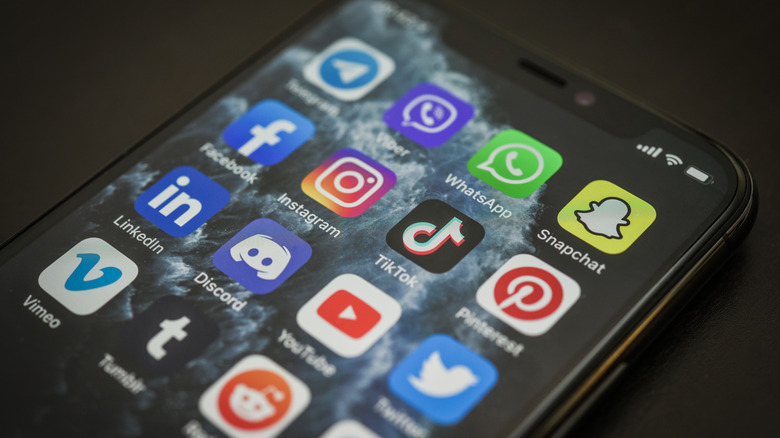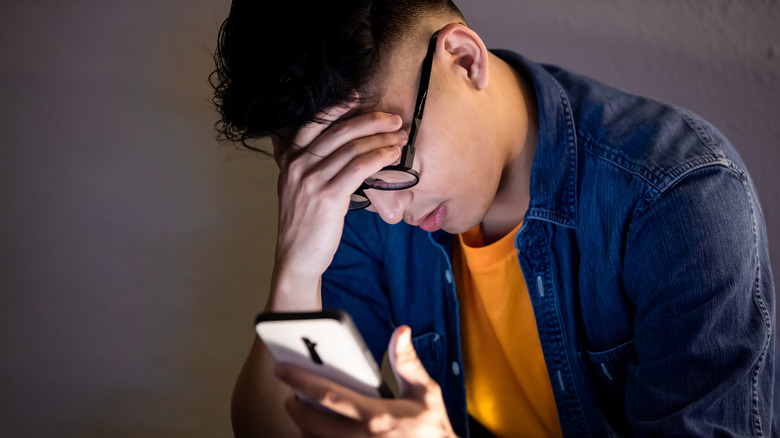Which Social Media Platform Is The Worst For Mental Health?
Through social media, the world is able to collaborate, learn, communicate, and share, as pointed out by ReachOut.com. However, there are many negative side effects, as well, such as those impacting mental health.
Social platforms were created in an addicting way, and psychologist Jacqueline Sperling explained that the cost-benefit nature of social media apps lures users back time and time again. "Think of a slot machine: If game players knew they never were going to get money by playing the game, then they never would play. The idea of a potential future reward keeps the machines in use," Sperling told McLean Hospital. "The same goes for social media sites. One does not know how many likes a picture will get, who will like the picture, and when the picture will receive likes. The unknown outcome and the possibility of a desired outcome can keep users engaged with the sites."
Furthermore, studies have shown that those who are on these sites regularly may suffer from depression and anxiety (via JAMA Psychiatry). But which social media platform is the worst for mental health?
This social site can lead to 'feelings of inadequacy and anxiety,' expert says
The Royal Society for Public Health (RSPH) and the Young Health Movement put out a report on the topic of social media and mental health. Each platform was scored, based on how people felt said-platforms impacted things such as access to trusted health information, emotional support, nervous feelings, thoughts on self-image, maintaining relationships, FOMO, and threatening behavior.
Overall, YouTube was deemed the most positive site, out of the top five social media networks, and it was followed by Twitter, Facebook, and Snapchat. The platform with the lowest score was Instagram, making it the one with the most negative impacts on mental well-being.
Shirley Cramer, the chief executive of RSPH, noted that Instagram is "very image-focused," so it could be "driving feelings of inadequacy and anxiety" in people. "Social media has been described as more addictive than cigarettes and alcohol and is now so entrenched in the lives of young people that it is no longer possible to ignore it when talking about young people's mental health issues," she said.
If you or someone you know is struggling with mental health, please contact the Crisis Text Line by texting HOME to 741741, call the National Alliance on Mental Illness helpline at 1-800-950-NAMI (6264), or visit the National Institute of Mental Health website.

